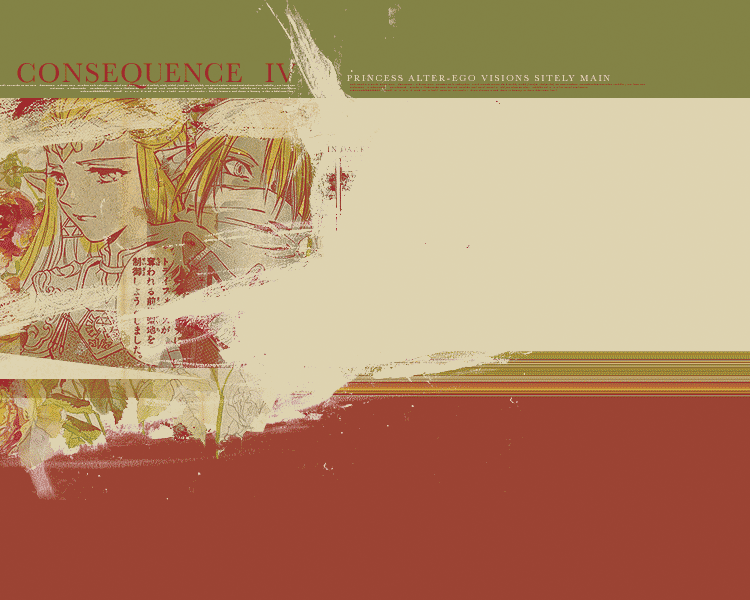
E Pluribus Unum
Zelda, seems to me, to fit roughly into two stereotypes, but also seems to evade them because she's not a hopeless whiny brat. Um, yay?
The first one is the "damsel in distress", perpetuated by chivalric poems, Super Mario Bros., and the like. You know how this story goes. Princess, locked up in a tower, hero to the rescue, etc, etc. I mean, Zelda wears pink, so I suppose there's no way to get around this. And she does get captured and need to be rescued.
However, this line of thought generally makes the princess utterly annoying and good for nothing. Zelda isn't that. For one thing, it's Zelda who really initiates Link's quest, and saving Zelda isn't really the object of LoZ: saving the world is. Also, though she wears pink, and heels, and other horribly impractical things, she's a master of disguise! Wooo. But basically, Zelda isn't helpless, she's got a whole lot of powerful magic at her disposal, she'd quite clearly go and save Link if necessity demanded (and hey, there was a really bad game where that happened) and she's the one that's going to rule Hyrule, not her rescuer. Clearly, Legend of Zelda borrows a lot from, well, legends, but it's also a bit different too, especially where the character of Zelda is concerned. (Link is much more the archytipical hero. Except in tights.)
I'd like to bring up another idea: that of the tragic heroine in Greek mythology. This is not exactly applicable for several reasons, foremost being that Zelda doesn't hang herself, or rip her eyes out, or something like that. However, the tragic heroine is of a certain rank socially (usually a princess) who is faced with some sort of horrible problem. She has a tragic flaw that eventually results in her downfall. In the videogame, the tragedy is downplayed, but there's a note of melancholy at the end as Zelda admits her faults and sends Link back into his own time.
Furthermore, in Greek mythology, it is the women who usually have a special bond with the gods. (Because the gods, like, rape them, but whatever.) Consider Cassandra, the doomed prophet, or Antigone, who contradicts her uncle Creon's rulings on the basis of her faith in a pine law. A common fault among women, in the Greecian tales, is the desire for power, or overstepping the woman's traditional role, and thinking about crazy things, such as the laws of her country, and what not.
So our princess, though her origins can clearly be traced through numerous veins of storytelling, remains he own self, unique.

